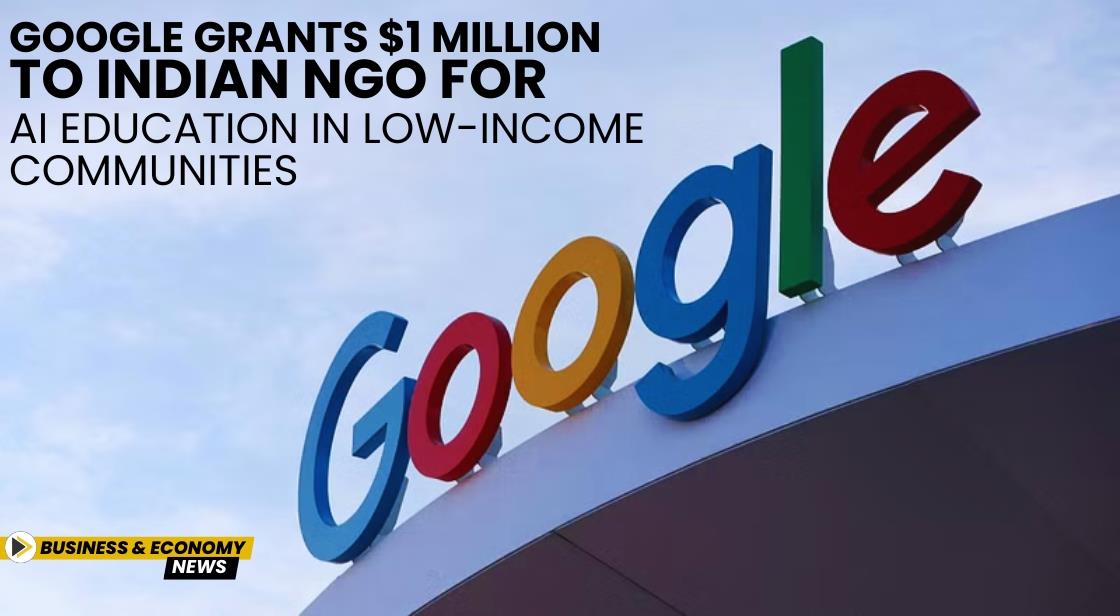Google Grants $1 Million to Indian NGO for AI Education in Low-Income Communities

News Synopsis
Google.org, the philanthropic arm of Google, has announced a $1 million grant to Karya, a non-profit organization dedicated to enhancing opportunities for low-income communities through access to artificial intelligence (AI)-powered learning and earning platforms. This grant aims to advance Karya’s mission of connecting underserved populations to paid digital tasks that can be performed using an AI-driven multilingual chatbot.
Leveraging Generative AI for Accessible Digital Tasks
The core of Karya's initiative revolves around the development of a chatbot designed specifically for users with limited digital literacy. This tool simplifies complex tasks such as data annotation and feedback provision, allowing users to engage with these tasks through their smartphones. Not only does this enable users to complete digital tasks, but it also supports the development of AI models in local languages, making AI more accessible and relevant to India's diverse linguistic landscape.
A Step Towards AI-Driven Skill Development
This initiative is part of Google's broader strategy to prepare India's workforce for the future of AI. In line with its vision of leveraging technology to create opportunities for all, Google recently launched the AI Skills House, a program aimed at training 10 million Indians in AI skills. In addition, a $4 million grant was given to the Central Square Foundation to promote the responsible use of AI and digital literacy among five million students, teachers, and parents.
Expanding the Reach of AI Education Globally
Karya plans to utilize this grant to design a comprehensive digital skilling pathway for marginalized communities. Their digital curriculum will be research-based and assessed through experience-based frameworks, with the goal of offering these courses in ten major Indic languages. By harnessing the power of Generative AI, Karya will develop a multilingual chatbot to provide real-time assistance on both its app and web platforms. This will enable users across various levels of digital proficiency to participate in AI-driven tasks and unlock new earning opportunities in languages they are familiar with.
Karya is also expanding its impact beyond India, with trials already underway in Ethiopia, where the chatbot is supporting local language tasks like Amharic. The organization plans to share its digital skilling framework and chatbot research freely, allowing other non-profits, government agencies, and developers to create solutions that democratize access to digital work and increase income opportunities globally.
Empowering Over 50,000 People in Rural India
Karya’s efforts have already made significant strides in rural India, where over 50,000 individuals—90% of whom belong to marginalized communities—have benefited from digital tasks like data annotation. These tasks have helped raise household incomes, with workers earning up to 20 times the local minimum wage using only smartphones. With the new funding and platform enhancements, Karya aims to double its reach, providing AI-powered opportunities to over 100,000 people by the end of the year.
Contributing to Poverty Alleviation and Economic Upliftment
The ultimate goal of Karya’s initiative is not just to create economic opportunities, but to contribute to broader poverty alleviation efforts in India and beyond. By providing access to AI-driven tasks, Karya hopes to empower individuals to break the cycle of poverty and build more sustainable futures.
Google’s Global Commitment to AI Education
In addition to the $1 million grant to Karya, Google’s commitment to AI education extends to a $120 million Global AI Opportunity Fund announced at the United Nations 79th General Assembly in September 2024. This fund aims to partner with NGOs and nonprofits worldwide to make AI training accessible in local languages, ensuring that underserved communities around the globe can thrive in the AI-driven future.
Through these initiatives, Google is demonstrating its dedication to using AI for good, making it a powerful tool for inclusive development and creating new opportunities for individuals around the world.
You May Like









